Non-political relations of Vladimir Putin and Eastern leaders
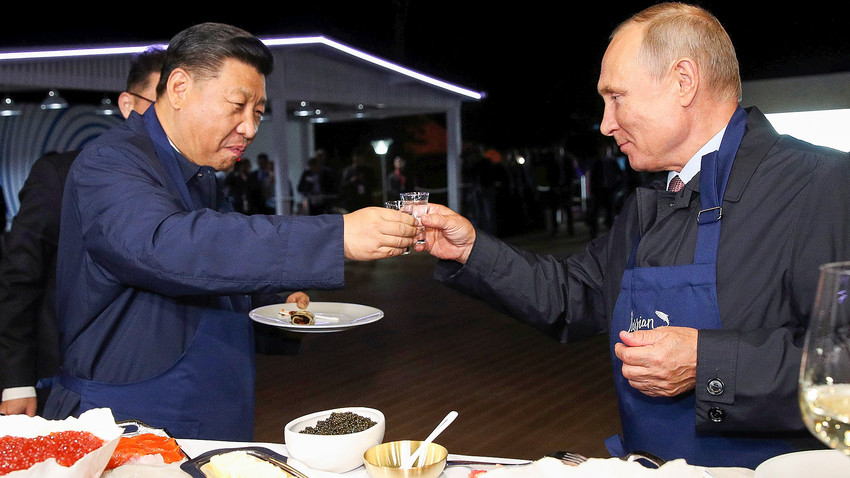
Russia and Eastern countries have a long history of cultural and political relations. During the presidency of Vladimir Putin, the Russian president has paid special attention to political ties with the East, meeting Asian leaders on so many occasions that the media chit-chat has frequently strayed beyond the realm of politics.
Xi Jinping’s ice cream
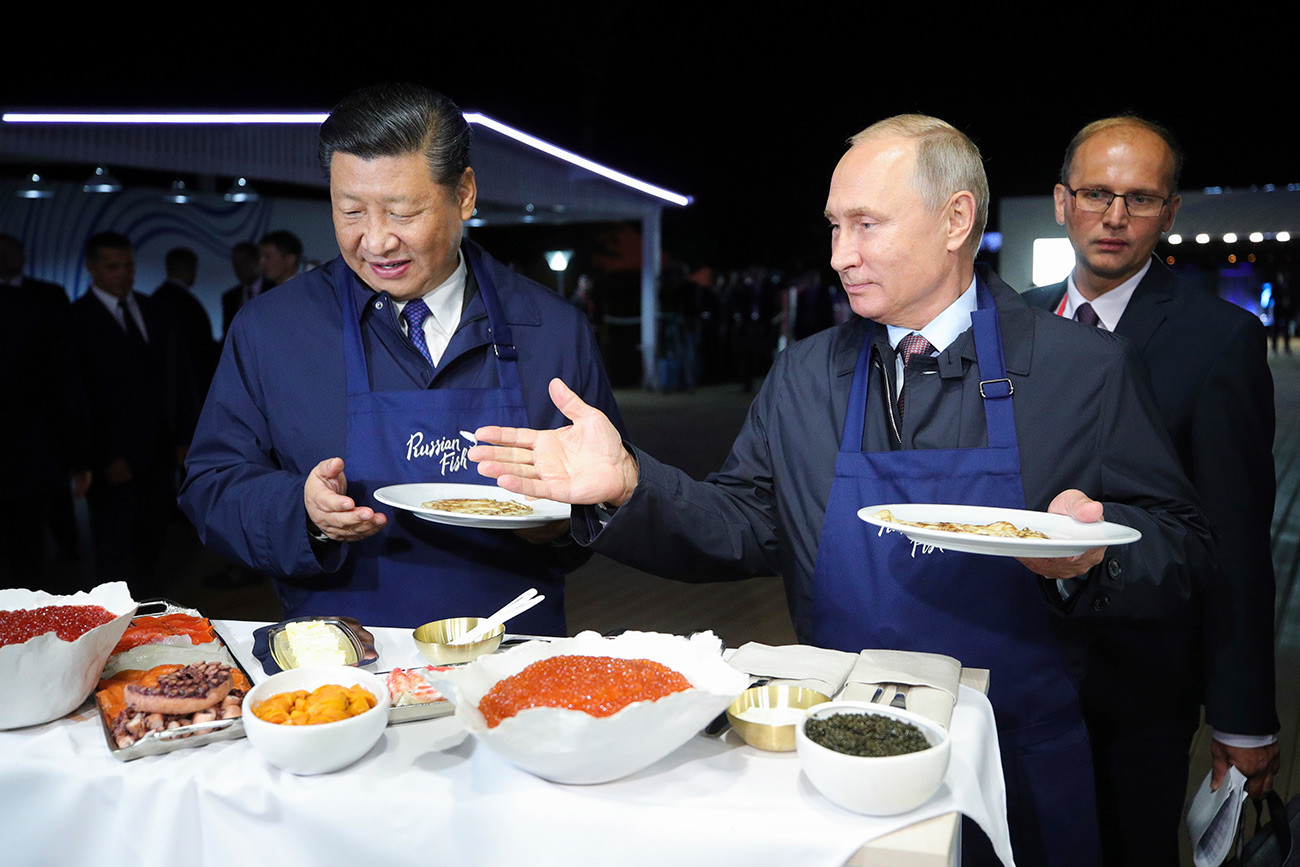
Vladimir Putin and Xi Jinping trying Russian food at the Eastern Economic Forum in 2018
APPutin said that Chinese businessmen had complained to him about the low availability of Russian ice cream in China: Russian ice cream is imported into China from the Russian Far East, but because of the customs regulations, it rarely arrives fresh. So the Russian president decided to bring some with him.
Visibly pleased, Xi Jinping confessed to buying Russian ice cream every time he visits Russia, and his family loves it very much.
Putin and Peng Liyuan’s shroud

Chinese TV showed the episode
The episode caused a stir on Chinese social media. Most Chinese users expressed their liking and support for Putin nonetheless, but there were some who criticized him for supposedly breaking etiquette. However, it was not new territory for Putin, having performed the same gesture of chivalry with the shoulders of German Chancellor Angela Merkel a year earlier in 2013.
Putin and Lee Hsien Loong
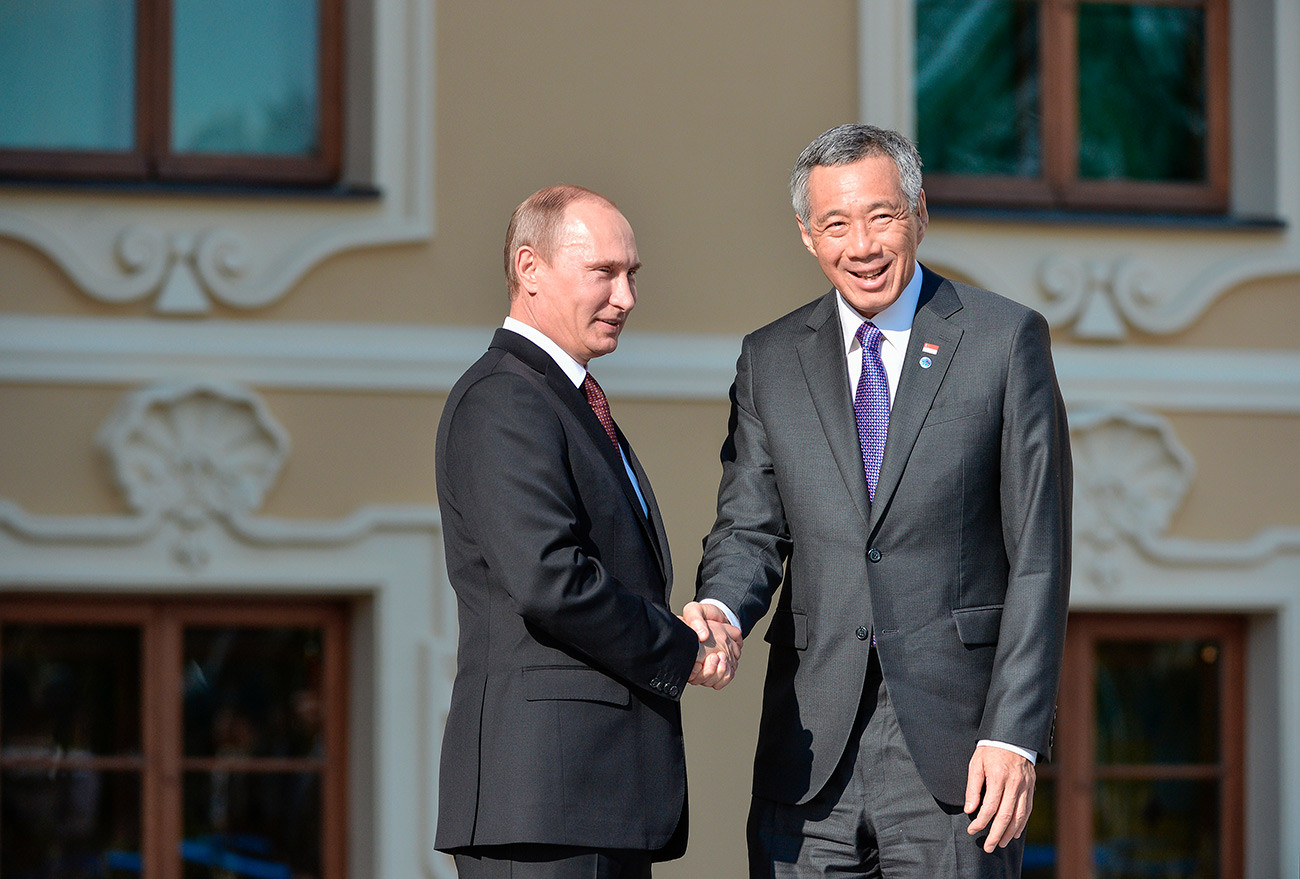
Putin and Narendra Modi
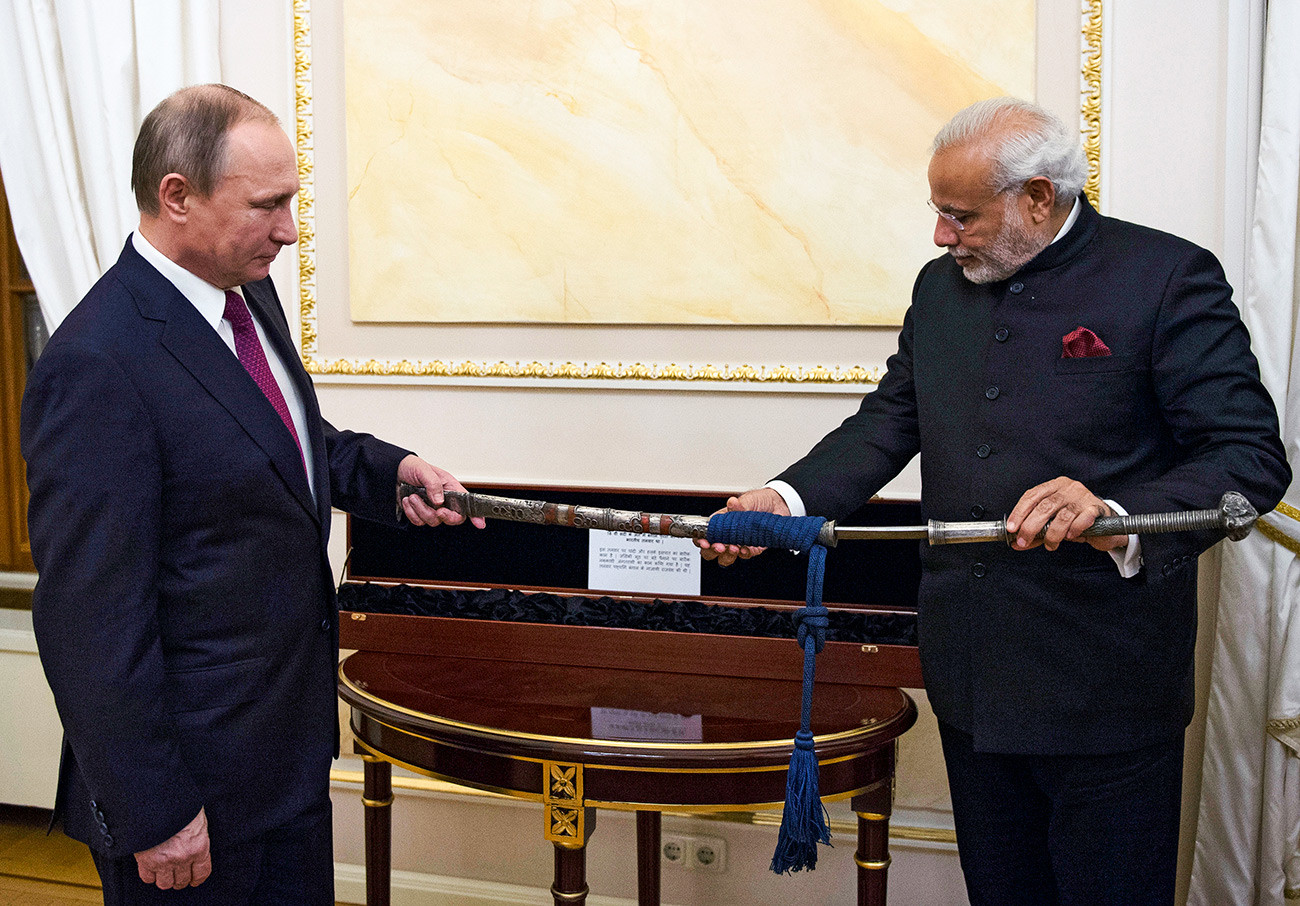
Earlier, in 2015, at an informal meeting in Moscow, Narendra Modi had presented Vladimir Putin with two meaningful gifts: an 18-century Indian sword and an original fragment of Mahatma Gandhi's handwriting. While the sword was meant to underline the strategic military partnership of the two countries, Gandhi's handwriting brought to mind an earlier famous quote by Vladimir Putin
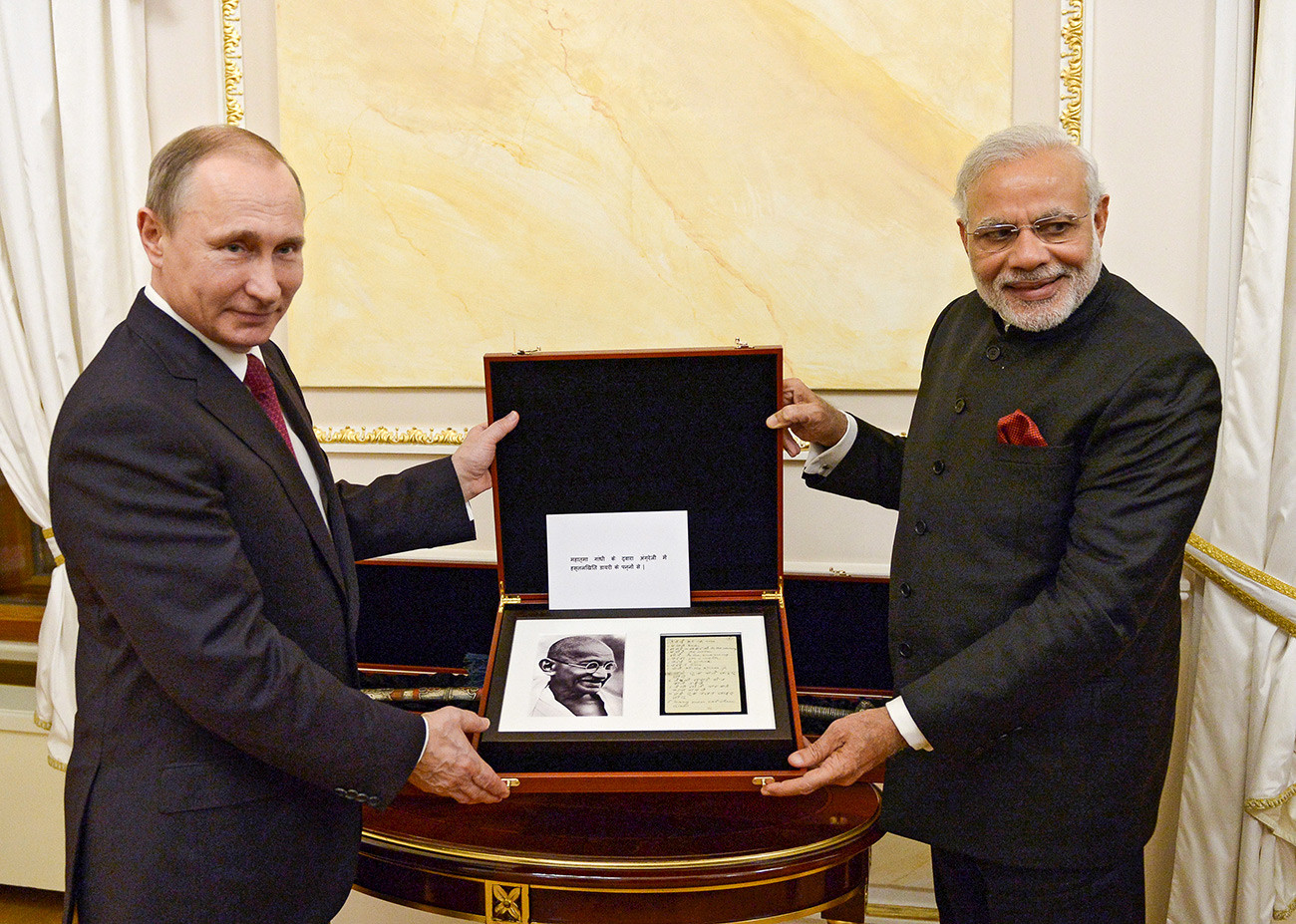
Putin and Shinzō Abe
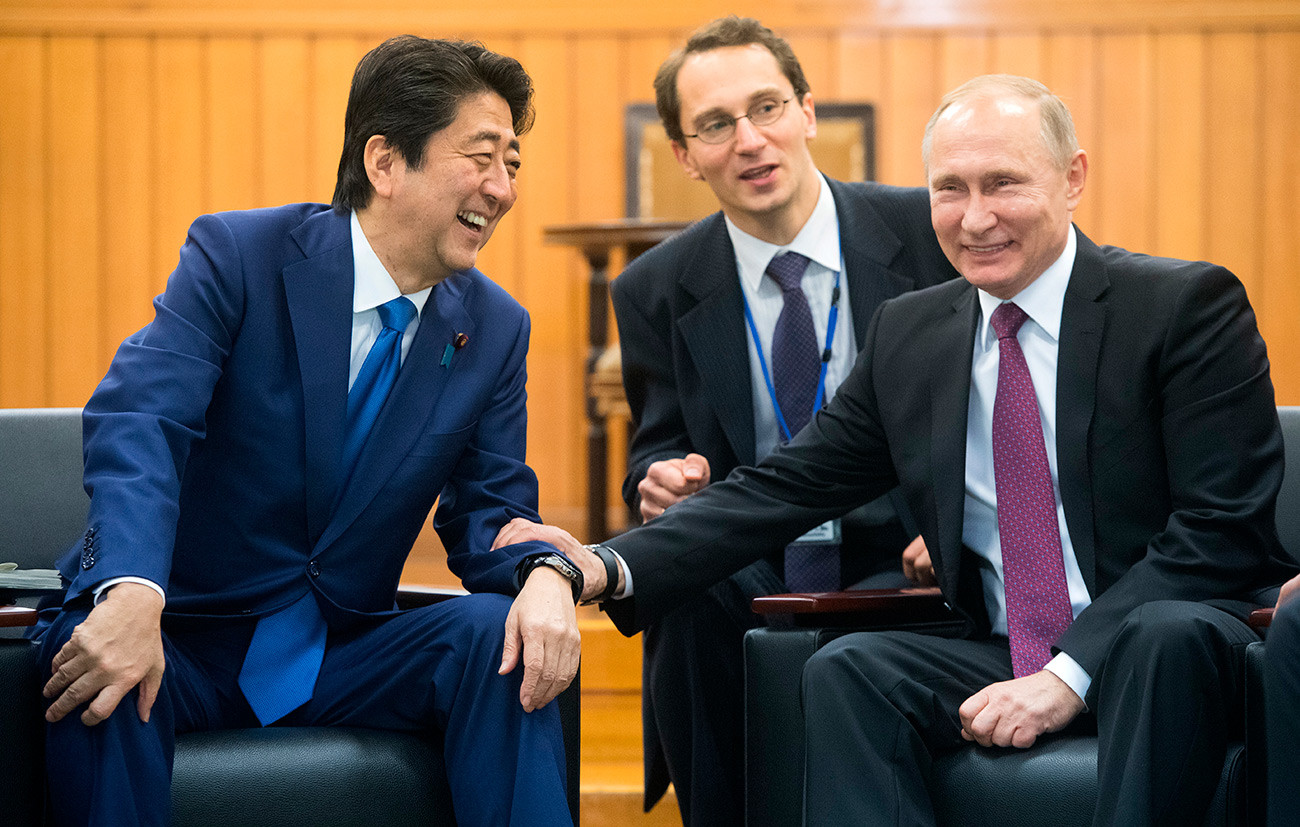
During Putin’s visit to Japan in 2016, Shinzō Abe suggested a joint visit to an onsen (thermal spring) in Nagano city, Abe’s hometown. The Russian president, however, politely declined the offer. Instead, he and Abe visited the Kodokan Centre of Martial Arts in Tokyo, where they enjoyed a judo demonstration.

Judo is one of Putin’s favorite sports. “I got into judo when I was just a kid, and Eastern martial arts in general – their special philosophy, the ethics of communication with your opponent, and the rules of engagement,” Putin says.
If using any of Russia Beyond's content, partly or in full, always provide an active hyperlink to the original material.
Subscribe
to our newsletter!
Get the week's best stories straight to your inbox